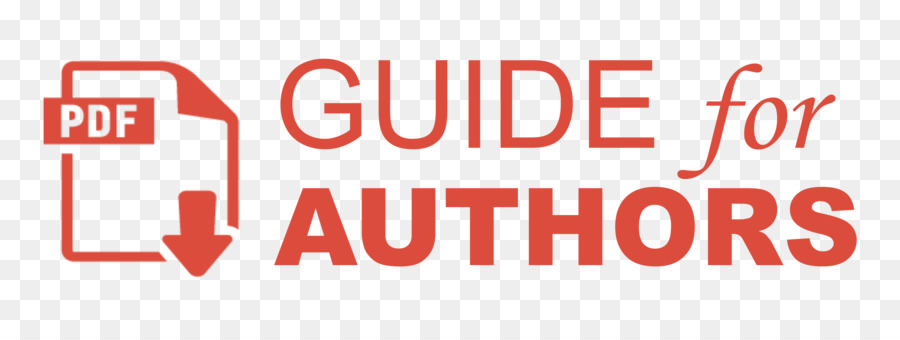ANALISIS PENGARUH KARAKTERISTIK INDIVIDU, KARAKTERISTIK PEKERJAAN DAN KARAKTERISTIK ORGANISASI TERHADAP KINERJA KARYAWAN PT. TRANS NUSANTARA BORNEO
(1) Politeknik Kotabaru
(*) Corresponding Author
Sari
The aims of this research were 1) to analyze the significant effect of individual characteristics on employees’ performance partially, 2) to analyze the significant effect of job characteristics on employees’ performance partially, 3) to analyze the significant effect of organizational characteristics on employees’ performance partially, 4) to analyze the significant effect of individual characteristics, job characteristics and organizational characteristics on employees’ performance simultaneously. The types of research was causal research. The populations were employees at PT. Trans Nusantara Borneo (TNB), with 30 peoples as samples in this research and sampling technique uses saturated sampling technique. The method of data analysis used multiple regression analysis. The results of research showed that individual characteristics have insignificant effect on employees’ performance partially. Job characteristics and organizational characteristics have significant effect on employees’ performance partially. Individual characteristics, job characteristics and organizational characteristics have significant effect on employees’ performance simultaneously.
Keywords: Individual Characteristics, Job Characteristics, Organizational Characteristics, Employees’ Performance.
Teks Lengkap:
PDFReferensi
Ali, S.A.M., Said, N.A., Yunus, N.M., Kader, S.F.A., Latif, D.S.A., & Munap, R. (2014). Hackman and Oldham’s Job Characteristics Model to Job Satisfaction. Procedia – Social and Behavioral Sciences. Vol. 129, p. 46-52.
Arshadi, N., dan Shahbazi, F. (2013). Workplace Characteristics and Turnover Intention : Mediating Role of Emotional Exhaustion. Procedia – Social and Behavioral Sciences. Vol. 84, p. 640 – 645.
Banai, Moshe & Reisel,William D. (2007). The influence of supportive leadership and job characteristics on work alienation: A six-country investigation. Jurnal of World Business. Vol. 42, p. 463 – 476.
José Ramón Cobo-Benita, Enrique Rodríguez-Segura, Isabel Ortiz-Marcos, Luis Ballesteros-Sánchez. (2015). Z Analyzing the impact of organizational characteristics. Journal of Business Research. Vol. xxx, p. xxx – xxx.
Bernardin, J. Dan Russell. (1993). Human Resources Management : an experiental approach. New York: McGraw-Hill Publishing.
Grotto, Angela R. & Lyness, Karen S. (2010). The costs of today’s jobs:
Job characteristics and organizational supports as antecedents of negative spillover. Journal of Vocational Behavior. Vol. 76, p. 395 – 405.
Hauff, S., Richter, N.F., Tressin, T. (2015). Situational job characteristics and job satisfaction: The moderating role of national culture. International Business Review. Vol. xxx, p. xxx – xxx.
Hellregel, Don and Slocum, John. (1996). Manajement, Seventh Editions. Cincinnati Ohio: South Western College Publishing.
Hutchens, Robert. (2010). Worker characteristics, job characteristics, and opportunities for phased retirement. Labour Economics. Vol. 17, p. 1010 – 1021.
Kahya, Emin. (2007). The effects of job characteristics and working conditions on job performance. International Journal of Industrial Ergonomics. Vol. 37, p. 515 – 523.
Kim, H., Knight, D.K., & Cruitsinger, C. (2009). Generation Y employees' retail work experience: The mediating effect of job characteristics. Journal of Business Research. Vol. 62, p. 548 – 556.
Lee, Jaehee, Lee, Jinjoo, Souder, William E. (2000). Differences of organizational characteristics in new product development: cross-cultural comparison of Korea and the US. Technovation. Vol. 20, p. 497 – 508.
McKnight, D.H., Phillips, B., Hardgrave, B.C. (2009). Which reduces IT turnover intention the most: Workplace characteristics or job characteristics?. Information & Management. Vol. 46, p. 167 – 174.
Moses, R.M., Astuti, E.S., dan Hakam, M.S. (2014). Pengaruh Karakteristik Individu dan Karakteristik Pekerjaan terhadap Prestasi Kerja Karyawan. Jurnal Administrasi Bisnis (JAB). Vol. 12. No. 01, p. 1 – 10.
Ozbag, G.K., Ceyhun, G.C., dan Cekmecelioglu, H.G. (2014). The Moderating Effects of Motivating Job Characteristics on the Relationship between Burnout and Turnover Intention. Procedia – Social and Behavioral Sciences. Vol. 150, p. 438 – 446.
Riduan. (2010). Metode dan Teknik Menyusun Tesis, Edisi Kesepuluh. Bandung: ALFABETA
Robert D. Mason dan Douglas A. Lind. (1996). Teknik Statistika untuk Bisnis dan Ekonomi, Edisi Kesembilan. Alih bahasa, Wikarya, U., Soetjipto, W., & Sugiharso (1999). Jakarta: Erlangga.
Robbins, Stephen. (2006). Perilaku Organisasi, Edisi Kesepuluh. Jakarta: PT. Indeks.
Sugiyono. (2009). Metode Penelitian Kuantitatif, Kualitatif dan Research & Development. Bandung: Alfabeta.
Tai, C., Chen, L., Chang, C., dan Hong, J. (2012). The impact of individual characteristics, personality traits, perceived risk on young people’s intention to participate in overseas working holiday. Procedia – Social and Behavioral.Vol.57,p.388-395.
Valter, Moreno, Jr., dan Cavazotte, Flavia. (2015). Using Information System to Leverage Knowledge Management Processes: The Role of Work Context, Job Characteristics and Task- Technology Fit. Procedia Computer Science. Vol. 55, p. 360 – 369.
DOI: http://dx.doi.org/10.31602/alsh.v4i2.1851
Refbacks
- Saat ini tidak ada refbacks.
Al-Ulum : Jurnal Ilmu Sosial dan Humaniora by https://ojs.uniska-bjm.ac.id/index.php/ALSH is licensed under is licensed under a Creative Commons Attribution-ShareAlike 4.0 International License.












